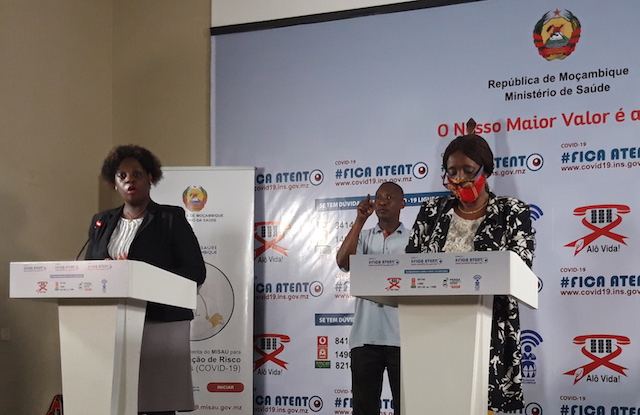Mozambique: Flag carrier readjusts flights due to CRJ 900 withdrawal
Government has no measure to protect 68,000 Culture and Tourism jobs affected by Covid-19 in Mozambique – A Verdade

Photo: A Verdade
Because of the ban or limitations on travel, one of the first productive sectors to feel the impact of the Covid-19 pandemic worldwide was tourism. In Mozambique, 68,000 workers – in travel agencies, tourism enterprises, food and beverage establishments – are at risk of becoming unemployed, and the government has no measure to protect them.
“In the area of tourism, of the 2,462 tourism enterprises, 3,986 food and beverage establishments and 336 travel agencies in the country, 696 have already closed, of which 155 are tourist enterprises, 484 food and beverage establishments, 12 travel agencies and 45 dance halls,” adviser to the Ministry of Culture and Tourism Ndica Massinga revealed at a press conference in Maputo on Thursday (23). These closures, although perhaps temporary, call into question about 3,511 jobs.
Massinga siad that the tourism sector, one of the six strategic options for the 2020-2024 five-year period, and which aims to create 462,389 new jobs in our country, “employs, in general, a total of 68,000 workers”.
Asked what specific measures existed to help culture and tourism entrepreneurs to keep their workers on, the Ministry of Culture and Tourism source declared that the sector “is very transversal: everything that contributes to its development has a scope in the performance of the other sectors. So when I say that businesspeople in the area of tourism or culture will benefit from the measures that the Bank of Mozambique and the government are taking, it is because the measures are actually transversal. The Ministry of Culture and Tourism as such will not take any measures, but will influence and advocate with other government entities which have responsibility in these co-related areas”.
“The Ministry [of Tourism and Culture] has created a Crisis Management Office, run with the Cooperation Partners, both national and international, and with the government itself, to articulate concerted solutions to solve some problems. In the case of culture in particular, we are negotiating funds with UNESCO and the World Tourism Organisation to support the sector,” Massinga said, citing an initiative called “Arte no Quintal” [‘Art in the Backyard’], which allows artists to broadcast live-streaming shows and promote exhibitions to be disseminated by community radio, television and digital platforms.
By Adérito Caldeira













Leave a Reply
Be the First to Comment!
You must be logged in to post a comment.
You must be logged in to post a comment.